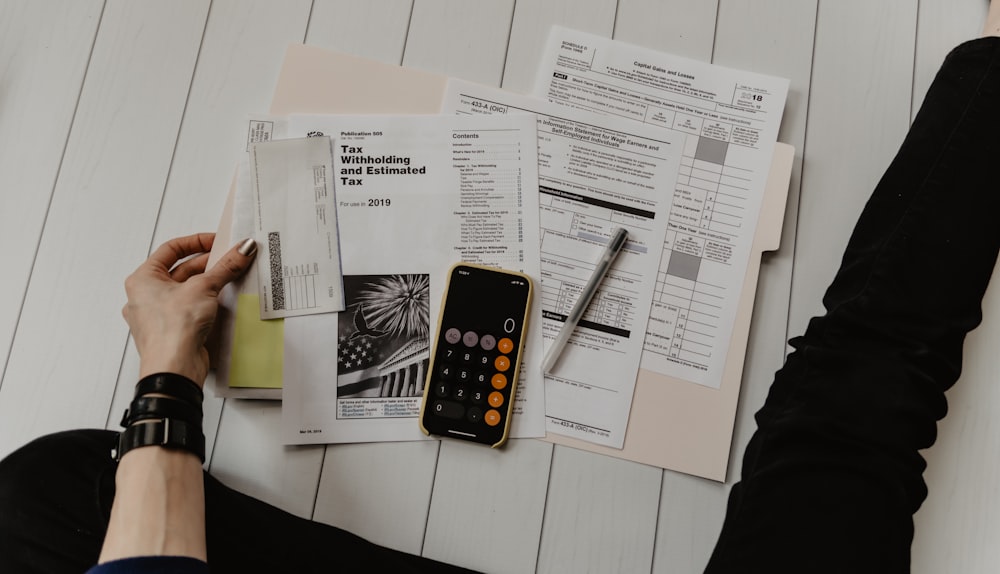Running a rental is like running any other business.
It requires attention to detail, careful accounting, and lean business practices. Having the right tools can mean the difference between profit and loss. There are numerous expenses that landlords need to keep track of, for example, in order to make the most of their deductions in their tax return.
In this article, we explore how you can employ tools across the management of your real estate portfolio to save both time and money.
Reduce Unnecessary Overheads
The first step that any financial advisor, any wealth-building blog or book will tell you is to cut your expenses, spend less so that you have more to invest. When thinking about improving the profitability of a rental portfolio this comes down to carefully scrutinizing your expenses and determining methods for reducing overheads.
If you cover utilities, for example, you might look for a new energy provider. One key expense for landlords is property managers. Often they take upwards of 10% of the monthly revenue plus expenses and additional costs for things like finding tenants. For some, the time they save is worth the price, however, if you are looking to cut overheads there are numerous tools on the market designed to allow landlords to self-manage, cutting their monthly management costs by a factor of ten or more.
Automate Tasks
Time is money, as they say. As your portfolio grows it will begin to consume more and more of your time. Whether it’s responding to requests from tenants, chasing up late rent payments, or managing your books, it can quickly add stress and take you away from those tasks which will actually help you build wealth.
The right tools will allow you to automate or simplify time-consuming tasks while simultaneously ensuring you maintain high professional standards across your rental portfolio management even as you’re reducing time and overall management costs.
Track Expenses as they Happen
Another reason to take a more hands-on approach when managing your portfolio is the additional tax benefits. Landlords can deduct up to $25,000 worth of expenses against their income each year. To take full advantage of the tax benefits, whether it’s mileage, tools and maintenance expenses, or depreciation, you need to ensure that you carefully and accurately track every deductible expense.
When you use a property management app, you can quickly update your accounts on the go, digitize and store receipts in the app, organize emails to your tenants, set reminders so you never forget important appointments, and more.
Ultimately, what this means is you avoid the massive accounting tasks at the end of the month (or year) and you ensure you never miss a deductible expense.
Reduce Legal Fees
There are legal implications that come with owning and renting out a property. The most obvious example is of course evictions. They are an unfortunate reality for landlords. Even the best tenants, if hit by hard times may not be able to pay their rent. In this scenario, if you don’t have all the proper legal documentation you could be in for an expensive legal battle.
Your lease agreement, for example, needs to clearly stipulate everything from rent amount and due date to your policies on smoking and pets, and clearly outline your policies around subletting. Beyond that, there are inspection forms, notices, eviction forms, rent increase forms, transfer of title documents.
Everything you do as a landlord should be done in compliance with the law – ignorance is no excuse. The right tools and services will inform and educate while offering cost-effective solutions to creating or obtaining legal documentation. That in the long run could save you thousands in fees.
For example, make sure you’re in compliance by adding fire door signs at your properties. This can help save you from a lot of trouble whilst also helping to save lives in the event of an emergency.
Refinancing Options
Refinancing your properties at the right time can be a great way to save money or find additional funds for further growth. For example, mortgage rates hit record lows in falling below 3% in 2020 and many landlords leapt at the opportunity to secure better interest rates.
When it comes to refinancing you need to make sure you have all the data and documentation ready to prove the rental income is dependable – to essentially prove that you are a good investment for the bank. Documents you need will include an up to date profit and loss statement. This is where an effective income and expense tracker comes in.
Final Words
A landlord’s profits can be tenuous.
Taxes, fees, maintenance costs, vacancies, and missed rent payments can all see those profits disappear as though into thin air. Managing these expenses and staying on top of them using an effective property management software like Landlord Studio and taking relevant precautions will help you mitigate risks and ensure profitability.
Additionally, it is absolutely essential for a landlord to understand and take full advantage of the tax advantages which come with being a landlord.


